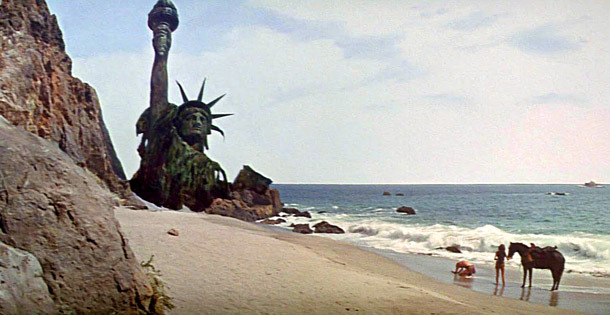National Geographic's take on humans
Origin: Africa - When: > 100,000 years ago - Who: Adam
"The common direct paternal ancestor of all men alive today was born in Africa between 300,000 and 150,000 years ago.Dubbed "Y-chromosome Adam" by the popular press, he was neither the first human male nor the only man alive in this time. He was, though, the only male whose Y-chromosome lineage is still around today. All men, including your direct paternal ancestors, trace their ancestry to one of this man's descendants. The oldest Y-chromosome lineages in existence, belonging to the AOO branch of the tree, are found inly in African populations.
Around 100,000 years ago the mutation named P305 occurred in the Y-chromosome of a man in Africa. This is one of the oldest known mutations that is not shared by all men. Therefore, it marks one of thee early splits in the human Y-chromosome tree, which itself marks one of the earliest branching points in modern human evolution. The man who first carried this mutation lived in Africa and is the ancestor to more than 99.9% of paternal lineages today. In fact, men who do not carry this mutation are so rare that its importance in human history was discovered only in the past two years." _ National Geographic.
So, we are mutants of the remaining possible 0.1% of the original beings.
Yeah, my foot!
How about the 0.1% are non-humans?
That would make more sense, and it would match the Bible.
Over 100,000 years ago?
Please, the World is only 6,022 years old.
Yes, 'scientists' claim it is billions of years old. Statement in which they have no proof whatsoever. Their carbon dating was never compared to real known facts, as of yet.
Sorry science, I'll go with the Bible or Thora (with a twist of Book of Enoch), for my verified world history.
Note: Enoch was mentioned in the Bible and Thora. "Enoch walked with God"
Many statements in the Bible, by prophets and Jesus are from Enoch or the Book of Enoch.
There are two main categories of dating methods in archaeology: indirect or relative dating and absolute dating.
Relative dating includes methods that rely on the analysis of ‘comparative data’ or the context (eg, geological, regional, cultural) in which the object one wishes to date is found. This approach helps to order events chronologically but it does not provide the absolute age of an object expressed in years. Relative dating includes different techniques, but the most commonly used are soil stratigraphy analysis and typology.
On the other hand, absolute dating includes all methods that provide figures about the real ‘estimated’ age of archaeological objects or occupations. These methods usually analyze ‘physicochemical transformation phenomena whose rate are known’ or can be estimated relatively well. This is the only type of techniques that can help clarifying the actual age of an object. Absolute dating methods mainly include radiocarbon dating, dendrochronology and thermoluminescence.
Criticizing Dating methods
‘physicochemical transformation phenomena whose rate are known’?
What kind of known is an assumption? How can we know that a transformation that occurred in the last millennium is equivalent to tens of thousands of years prior to these known few centuries of records, when we know full well that today’s world is a lot less violent and changing than the one we assume existed?

The scientific method does not support assumptions of assumptions to be facts.
Assumption: accepting something as fact without proof.
Scientific method necessitate to formulate an Hypothesis, to test it (multiple times), in order to formulate basis for a new theory. When the testing results are negative, then the hypothesis must either be rejected or modified. And, at all times of course the data should be gathered and recorded.
An assumption is NOT science, it’s scientism. Assumptions have led to many errors in mostly recent theories. Assumptions have caused harm to people. Assumptions are risk taking.
It has been proven that thousands of years ago the World was brutal and went through abrupt changes, so how can we make assumptions that what we observe today (in a relatively calm world), can be of similar significance in a long gone past?
There are countless theories about the cataclysmic abrupt changes that occurred in the past. Yet, must we absolutely reject the possibility of miles of water (the Flood), draining, washing and smashing tectonic plates to smithereens? Ever seen the power of water? Humans wrote books, and recorded things thousands of years ago, and we must disregard it?
One of the oldest manuscript was written by a man named Enoch. Countless legends have been written or engraved, and yet we assume they were ancient times Sci-Fi? How about assuming that there may be some truth to what had been recorded?

What should also be mentioned is that any scientist that does not follow accepted science (the political part of it), they will loose their jobs.
Why is it becoming more difficult to equate Science and Technological Breakthroughs?
I’ll tell you why. Science has too many times been proven wrong. Science has too many times made assumptions that had negative outcomes.
And this is why many are becoming Science Skeptics. Yet, all of us benefit from proven and useable Technological advances.
Technology has been tested over and over, used over and over. Yes, sometimes there are flaws, and those flaws often are remedied and fixed. We can trust Technology. A whole lot less can be said about science.













